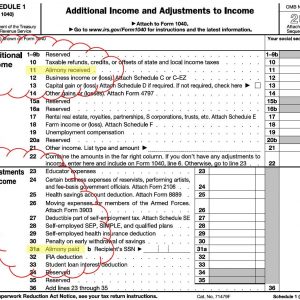 Oklahoma courts can provide for spousal support (alimony) following a divorce. The criteria considered in an award of spousal support include: need of the recipient and the ability to pay of the payor. Spousal support is usually considered “rehabilitative” to help the recipient make the transition to entering the workforce and setting up an independent household.
Oklahoma courts can provide for spousal support (alimony) following a divorce. The criteria considered in an award of spousal support include: need of the recipient and the ability to pay of the payor. Spousal support is usually considered “rehabilitative” to help the recipient make the transition to entering the workforce and setting up an independent household.
Before 2019, support alimony was (and has always been) tax deductible for the payee and considered a taxable income for the recipient. However, due to the Tax Cuts and Jobs Act, support alimony is no longer considered tax deductible or a taxable income. Essentially, the payee of support alimony will not receive any tax deductions, which can be a huge loss for some. On the other hand, any incoming support alimony checks will not be taxed. Depending on which side you’re on, the new tax law can be a win or a loss.
But this change doesn’t apply to everyone; if you support alimony agreement is dated on or before the 31st of December 2018, then this alteration does not apply to your situation. However, this is contingent on the established alimony requirements being met, such as:
- Alimony payment is cash or equivalent of cash payment
- Cannot be the same as child support
- Payments must be made in ex-spouse’s name
- Ex-spouses cannot be living in the same residence
- Payment must be specifically for Alimony
- The payer of alimony must have a valid Social Security Number
- No further alimony payments are required after recipient’s death
If the above requirements are satisfied, then the process for support alimony has not changed, and that alimony keeps its status as a taxable income for the recipient. If you’re not sure what this means for you specifically, contact a qualified lawyer to help break down how the Tax Cuts and Jobs Act will affect you.
